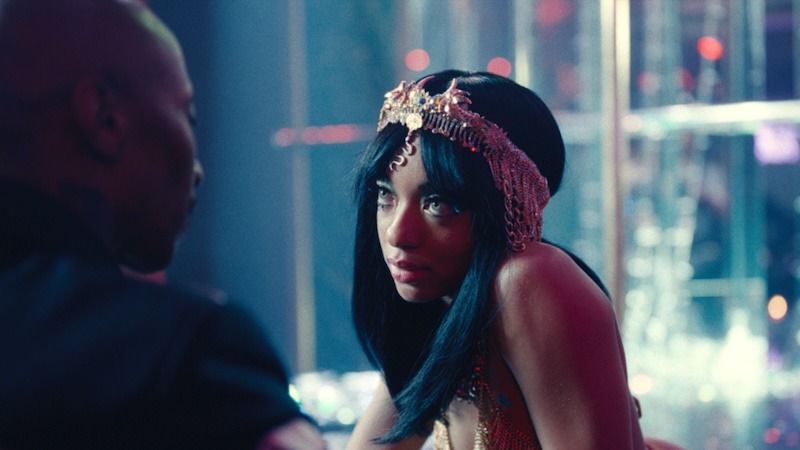Movie review Running Man
The film is a remake of the 1980s cult classic starring Schwarzenegger.

The release of Edgar Wright’s new movie, scheduled in Italy for November 13, 2025, is already achieving great success worldwide, capturing the attention of critics and audiences alike thanks to its relentless action and its ability to tell a dystopian story with a modern approach.
From ’80s action to social dystopia
The comparison with the 1987 movie is inevitable but also necessary to understand the scope of this new version.
Glaser’s Running Man was a futuristic, over-the-top action movie, steeped in satire but filtered through the colorful, muscular aesthetics of that era. The deadly reality show was a pretext to watch Schwarzenegger face eccentric gladiators, each more absurd than the last, in a parade of violence and spectacle that today seems both naive and irresistible.
In the ’80s movie, contestants were arrested on false charges and forced to participate in the deadly TV game, facing eccentric gladiators like Dynamo and other trained killers. In the remake, participation is voluntary but equally desperate: those who run risk their lives, and anyone can report or kill the fugitives, making the game much more realistic and brutal.
Stephen King’s novel, on the other hand, was something entirely different: a desperate race through a decaying America, told as a social nightmare rather than a televised arena. There, the protagonist did not fight monsters disguised as showmen but the very machinery of society—hunger, misery, dehumanization. This is why Wright has repeatedly emphasized that his movie is not a remake but a new adaptation of the book.
Cast
Glen Powell, coming off a highly successful season with Top Gun: Maverick, Anyone But You, and the surprising Hit Man, where he demonstrated a versatility across comedy, drama, and action that has made him one of the most versatile actors of his generation.
This time, the protagonist, Ben Richards, played by Glen Powell, is an ordinary man forced to enter the game out of extreme necessity: poverty and the need to buy medicine for his sick daughter. He is not the muscular, cocky superman portrayed by Schwarzenegger but an everyman pushed to the limit, a character closer to the desperate antihero of King’s novel.
Around him, Wright has assembled an interesting cast: Josh Brolin, solid and intense as always, likely playing an ambiguous antagonist; Colman Domingo, who now brings depth even to brief roles; Lee Pace and William H. Macy, veterans with natural magnetism; and Katy O’Brian, fresh from her performance in Love Lies Bleeding, perfect to embody physical toughness without lacking humanity. It’s a group of performers that immediately suggests a more ensemble, realistic movie where no one is just a narrative cog.
Setting and considerations
The dystopian society depicted in the movie is fierce and ruthless: hunger, misery, and the need to survive push a man to participate in a deadly game, while the television audience watches, judges, and indirectly participates. Wright accentuates the satire of media conditioning and information manipulation: in this society, the power of the media is total, and the messages transmitted control the emotions, opinions, and behaviors of the population. It’s a theme that resonates in our time, exaggerated here in a dystopian future where television turns despair into spectacle.
There is also a small tribute to the original movie: although Arnold Schwarzenegger does not appear in a cameo, his presence is remembered with effigies on banknotes and other details that pay homage to the past without weighing down the narrative.
The movie also stands out for its special effects and fast pace: Wright’s direction alternates frantic action sequences with moments of real tension, with tangible sets and a calibrated editing that conveys the sense of a desperate and dangerous race. The suspense is constant, and the audience remains engaged from start to finish.
In conclusion, The Running Man (2025) is not only a thrilling action movie but also a reflection on contemporary society: a depersonalizing and miserable world that turns suffering into spectacle, manipulating information and behavior. The movie successfully combines high-level entertainment and social critique, resulting in an enjoyable and thought-provoking experience thanks to its special effects, relentless pace, and a modern dystopian vision consistent with Stephen King’s novel.
© All rights reserved
You Might Be Interested

Review of The Housemaid: Sydney Sweeney stars in new thriller
The Housemaid boasts shocking twists under a poker face, but shows its’ cards too early

Avatar: Fire and Ash review: James Cameron is back for box-office blood
The Oscar-winning filmmaker’s latest wrestles between mesmerizing optics and deep storytelling, tiring itself out.

Zootopia 2 review: Disney Animation’s sequel pushes visual boundaries
Proving the first film was no one-trick pony, Disney grabs the bull by the horns for a second amusing animal adventure
-Bufo-(credit)-Max-Smeds.jpg)
Review of Shadowland, the documentary about Richard Stanley
Directed by Otso Tiainen, in competition at the Torino Film Festival

Hamnet review: Metamorphosis in the life of Shakespeare, with Paul Mescal, Jessie Buckley
To be or not to be; director Chloé Zhao answers yes with the story that conceived Shakespeare's seminal Hamlet

Now You See Me: Now You Don’t; The series’ latest struggles to spellbind
The next stage of the magical mavericks leans on humdrum hocus-pocus to pull Rabbit out a hat at the box-office

Predator: Badlands reshapes the genre classic in the new movie
A new angle on the unearthly huntsman hopes audiences “Get to the choppa!” and take it straight to the theatre

‘Money Talk$’ Brings Grit and Heart to Oscar-Qualified Short
Tony Mucci and David Mazouz’s debut short charts a $100 bill’s journey through a Reagen-era New York.



